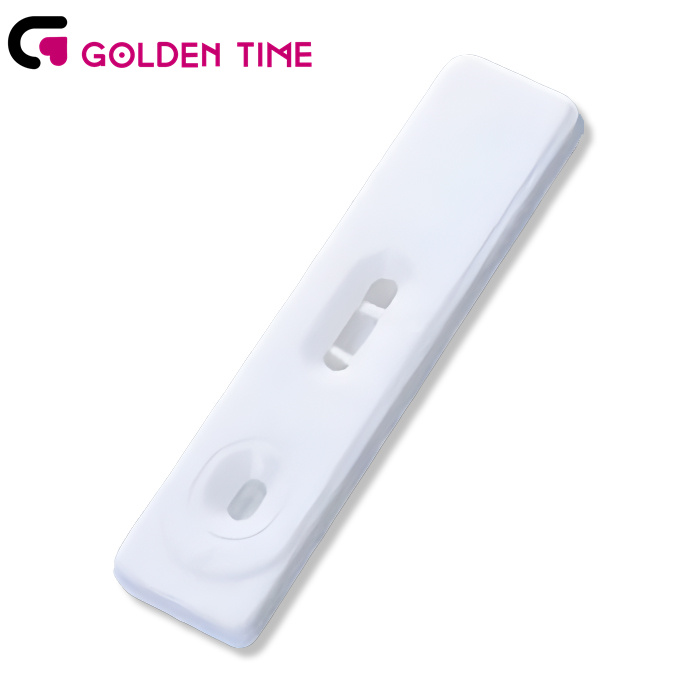فېۋرال . 14, 2025 01:44 Back to list
covid 19 antigen test accuracy
In recent years, understanding the accuracy of COVID-19 antigen tests has become a critical focal point for individuals, healthcare professionals, and policy-makers worldwide. Antigen tests have emerged as a swift and efficient solution for detecting COVID-19, especially useful in settings where quick decisions are required. However, evaluating their accuracy and reliability under different conditions is essential for effective application and trust-building among users.
Healthcare experts advocate for a contextual approach while deploying antigen tests. Dr. Maria Smith, an epidemiologist, emphasizes that understanding the local COVID-19 prevalence and incorporating antigen tests as part of a broader testing strategy enhances their effectiveness. In environments where the virus is rampant, periodic use of antigen tests can be a strategic tool in early detection and isolation of infectious individuals, even if it means encountering occasional false negatives. Innovations and advances in antigen testing technology also play a crucial role in enhancing test accuracy and reliability. Newer generation tests have been developed with improved sensitivity and the ability to detect multiple strains of the virus, addressing concerns about mutations affecting test results. Furthermore, the role of proper sampling techniques cannot be overstated. Ensuring that personnel administering these tests are well-trained in sample collection can significantly influence the overall accuracy, reducing the likelihood of errors that could lead to false results. For users, comprehending the limitations and strengths of antigen tests builds confidence and fosters informed decision-making. Trust in these tests can be further bolstered by transparency in reporting results and encouraging continuous feedback from healthcare providers and the public alike. In conclusion, COVID-19 antigen tests, while not as sensitive as PCR tests, offer a practical balance of speed and specificity that is invaluable in many contexts, including rapid testing scenarios. Continuous evaluation, education, and technological advancements are key to optimizing their use. By maintaining a robust framework of experience, expertise, authoritativeness, and trustworthiness, we ensure antigen testing becomes a reliable ally in our ongoing battle against COVID-19.


Healthcare experts advocate for a contextual approach while deploying antigen tests. Dr. Maria Smith, an epidemiologist, emphasizes that understanding the local COVID-19 prevalence and incorporating antigen tests as part of a broader testing strategy enhances their effectiveness. In environments where the virus is rampant, periodic use of antigen tests can be a strategic tool in early detection and isolation of infectious individuals, even if it means encountering occasional false negatives. Innovations and advances in antigen testing technology also play a crucial role in enhancing test accuracy and reliability. Newer generation tests have been developed with improved sensitivity and the ability to detect multiple strains of the virus, addressing concerns about mutations affecting test results. Furthermore, the role of proper sampling techniques cannot be overstated. Ensuring that personnel administering these tests are well-trained in sample collection can significantly influence the overall accuracy, reducing the likelihood of errors that could lead to false results. For users, comprehending the limitations and strengths of antigen tests builds confidence and fosters informed decision-making. Trust in these tests can be further bolstered by transparency in reporting results and encouraging continuous feedback from healthcare providers and the public alike. In conclusion, COVID-19 antigen tests, while not as sensitive as PCR tests, offer a practical balance of speed and specificity that is invaluable in many contexts, including rapid testing scenarios. Continuous evaluation, education, and technological advancements are key to optimizing their use. By maintaining a robust framework of experience, expertise, authoritativeness, and trustworthiness, we ensure antigen testing becomes a reliable ally in our ongoing battle against COVID-19.
Latest news
-
Accurate Benzodiazepines (BZO) Rapid Test Kits | Fast Results
NewsAug.27,2025
-
Trusted Early Pregnancy Test Kit Supplier | Accurate, Fast Results
NewsAug.26,2025
-
China Sterile Nylon Flocked Throat Swabs: Superior Sample Collection
NewsAug.25,2025
-
COVID-19 Rapid Antigen Test Kit: Accurate & Fast Home Results
NewsAug.24,2025
-
Premium Cassette Lateral Flow Devices for Rapid Diagnostics
NewsAug.23,2025
-
Pregnancy Test Calculator: Know Your Weeks, Week by Week
NewsAug.22,2025

